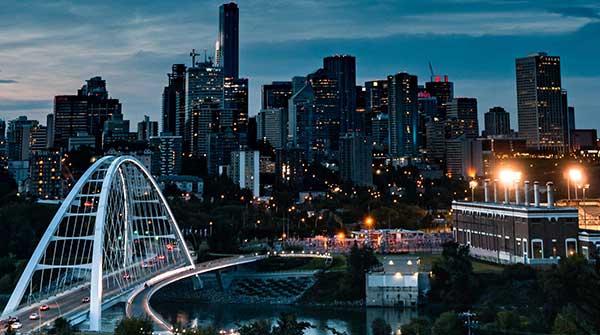Increased costs and reduced revenues force Edmonton to adjust its 2023-2026 budget
The City of Edmonton released its fall budget adjustment reports today, outlining a series of proposed updates to accommodate for increased expenses and decreased revenues, all while maintaining the commitments outlined in the 2023-2026 budget.
The city faces various financial pressures, including a greater-than-expected arbitrated salary settlement, soaring energy costs, and dwindling revenues from transit fares and ATCO Gas franchise fees. Consequently, a 7.09 percent tax hike is being proposed for 2024, which is 2.13 percent above the amount originally approved by the city council in December 2022. An additional $41.2 million will be required to uphold city services in 2024.

Stacey Padbury
Stacey Padbury, Chief Financial Officer and Deputy City Manager, stated, “We are unwavering in our commitment to delivering the 70 essential services that Edmontonians depend on daily, along with over 200 construction projects that are vital for our community both now and in the future. We are mindful of the fact that many Edmontonians are also grappling with financial difficulties. Hence, we are only recommending the budget adjustments that are absolutely necessary to uphold our services and bring critical capital projects to fruition.”
The 2023-2026 budget contains provisions for an increase in affordable housing, improved transit services, and enhanced snow and ice management. The budget also allocates funds for energy transition and climate adaptation initiatives, along with significant construction projects like the Valley Line West LRT, the Lewis Farms Rec Centre, the rehabilitation of the High Level Bridge and Hawrelak Park, and the transformation of the Yellowhead freeway.
“While the reduced taxes were crucial during the pandemic, they are not a sustainable approach in light of the current economic situation and the substantial population growth our city is experiencing,” Padbury added. “The rising cost of delivering the same services, coupled with the increasing demand for these services, necessitates an adjustment in taxes or service levels, or possibly a combination of both, to prevent long-term financial sustainability issues.”
Should the proposed tax increase be approved, Edmonton households would be paying approximately $750 for every $100,000 of their assessed home value in 2024, which is $49 more than in 2023. However, these figures are preliminary estimates and will be refined as the city progresses through its annual budget, assessment, and taxation process.
The fall budget adjustment also includes recommendations for the 2023-2026 capital budget, with a proposed $88.9 million increase primarily earmarked for affordable housing and crucial renewal projects. This proposed increase represents less than one percent of the approved $10.3 billion capital budget.
The city also published its first annual update to the carbon budget, a tool designed to assist the Council in making informed decisions as they adjust the capital and operating budgets while also monitoring progress toward the city’s energy transition goals. The city has allocated $376 million allocated in the 2023-2026 budget for services and construction that support these energy transition goals. However, the carbon budget update reveals that additional measures are required to meet the city’s objective of achieving carbon neutrality as a corporation by 2040 and as a community by 2050.
The fall budget adjustment reports, in conjunction with the first annual update to the carbon budget, will be presented to the Council for review and deliberation on November 7, 2023. Council will finalize any budget adjustments during the last two weeks of November.
For more information, visit edmonton.ca/budget.
| Staff
The opinions expressed by our columnists and contributors are theirs alone and do not inherently or expressly reflect the views of our publication.
© Troy Media
Troy Media is an editorial content provider to media outlets and its own hosted community news outlets across Canada.

